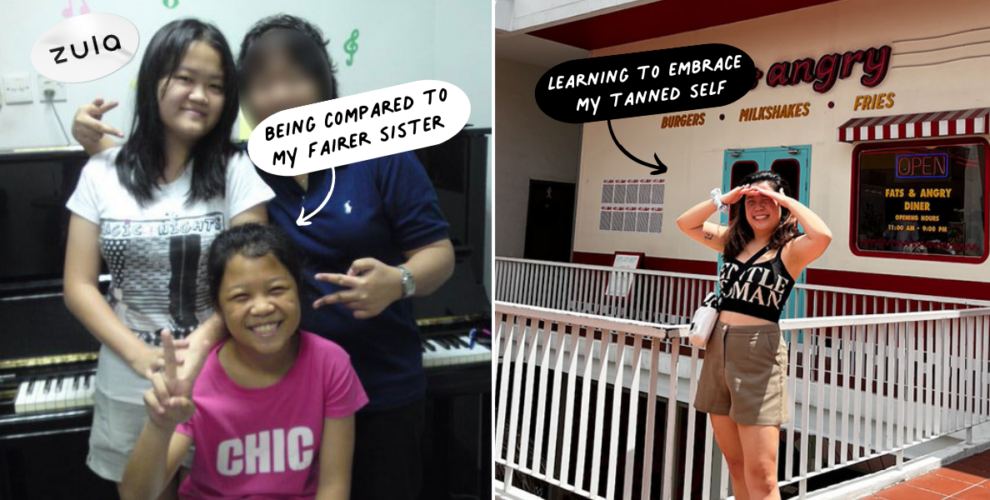Growing Up Tanned
Skincare products that offer lightening, whitening and radiant skin — yes, I’ve tried them all. With how fairness is stereotypically portrayed as superior in Asia, growing up as a tanned girl never failed to make me feel insecure about my skin tone.
More often than not, beauty ads promote new whitening products that promise to make you look “more beautiful”. Not to forget the traditional ah mahs, who love preaching how all girls must be fair-skinned. I’ve had my fair share of hearing that “boys don’t like tanned girls” throughout my youth.
Unlike the typical fair-skinned Singaporean Chinese girl, my skin has been darker than most from the day I was born. Even as the nurse handed the newborn me to my mother, she couldn’t help but ask, “Is your daughter mixed?”
Growing up hearing all these comments eventually made me obsessed with fair skin myself, and I was always looking for ways to make myself look “better”. Here’s what it has been like to suffer through years of negative comments, whitening products and unnatural Instagram filters. But now at 24 years old, I finally learned how to embrace myself and my tanned skin.
Contents
Growing up tanned in a predominantly “fair” environment
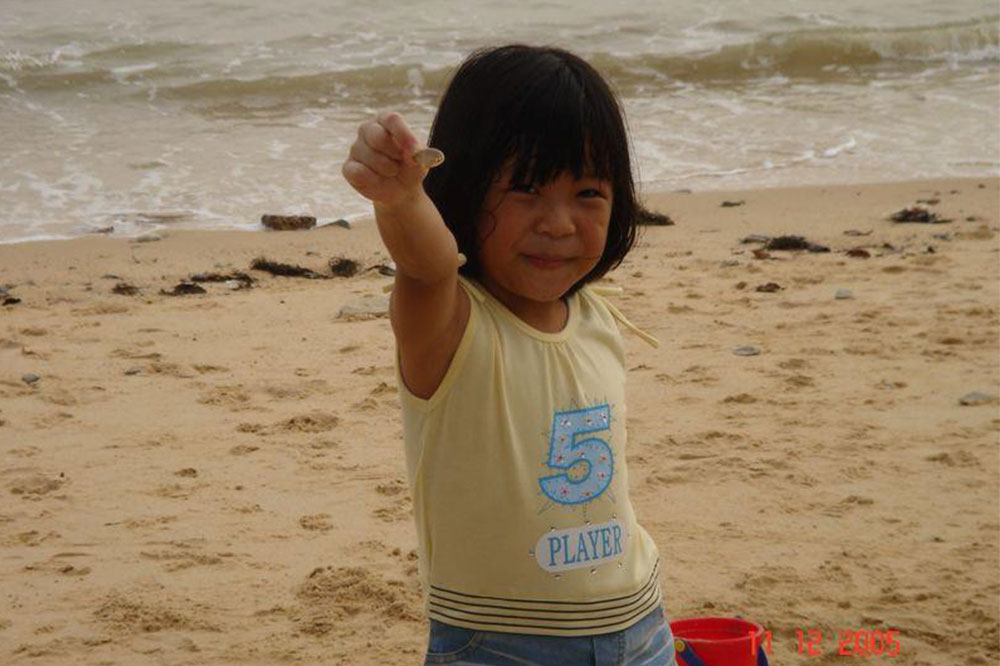 Me as a toddler with tanned skin
Me as a toddler with tanned skin
I’ve always been a tanned kid, and it was especially prominent during my toddler to primary school years. I often get asked if I’m mixed, and hawkers would even speak to me in languages other than English and Chinese.
Since both my parents are fair, people also joked that I might have been “mixed up” with someone else’s kid at the hospital. It sounds funny now, but my younger self was honestly fearful that it might have been true.
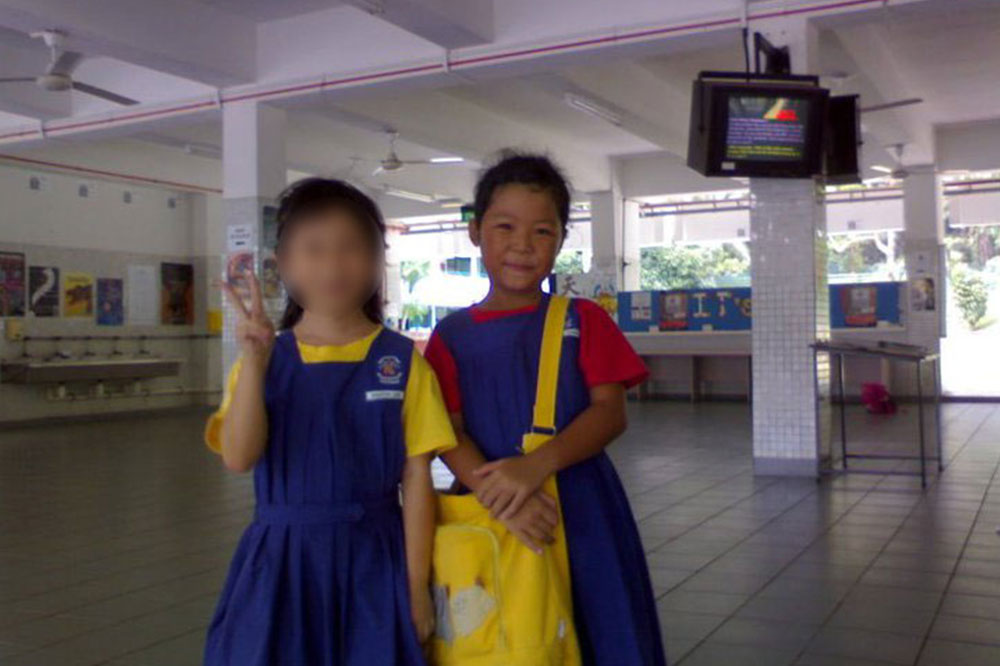 Me in Primary One with my (much fairer) friend
Me in Primary One with my (much fairer) friend
When I was younger, appearances weren’t a big deal. I was too busy enjoying my childhood to notice that I looked slightly “different” from other Chinese girls.
Occasionally, other kids in school did point out my tanned skin, but I simply brushed aside these comments. It didn’t hurt that my best friend at the time, who was half-Filipino, was just as tanned as me.
Plus, I was just 7 years old — a long time away from puberty, and too young to have discovered whitening skin products or the harsh reality of society. Unfortunately, this innocence didn’t last long.
 I played netball from primary school to university
I played netball from primary school to university
I played competitive netball almost my whole life, from when I was in primary school, up till my university years. Training took place thrice a week under the mercilessly hot sun. Wait — being in the sun for long hours? Bingo, you guessed it. This meant that over the years, I only got more tanned.
It wasn’t until secondary school that I became more conscious about my skin. It’s no surprise, since that’s the age when you start looking at yourself in the mirror more and becoming concerned about what others think of you.
I’m sure many of us have heard of this sexist expectation for girls to be fair in order to look “ladylike”, whereas boys should be tanned and “manly”. It’s ridiculous, but somehow still a common mindset, even today.
Handling negative comments from my family and friends
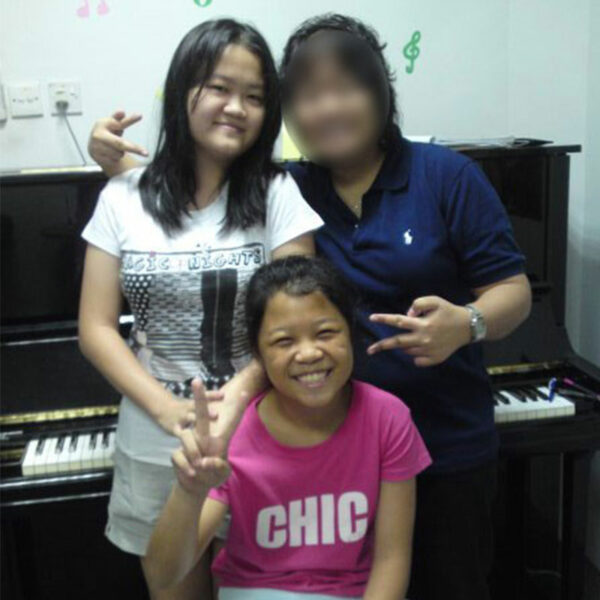 My sister and I when we were younger, with very obvious differences in skin tone
My sister and I when we were younger, with very obvious differences in skin tone
I began to dread Chinese New Year, where having huge gatherings with my extended family members meant that they would point out how tanned I was. And no, it totally wasn’t subtle at all. Most of the time, these relatives would complain about me being “too dark” to my mother — right in front of me.
One time, a relative told me to cut down on food that contained dark soy sauce. According to her, my tanned skin was a direct result of the dark pigments leaching into my skin.
Of course, the cherry on top of it all is my sister being one of the fairest-skinned people I know. She uses the same foundation shade as an angmoh person, while I, on the other hand, am too embarrassed to let people know mine.
I was used to hearing relatives say that I should be more like my sister. Looking back, what a strange comment this was. How could I possibly look more like her when we were born this way?
My relatives even tried convincing me to stop playing netball because playing sports is “manly” and “boys might not like it”. Somehow, their obsession with fairness turned into a warning that I was going to die single and alone. Asking a kid to stop playing in the sun for this reason sounds a bit too dramatic, if you ask me.
 A Facebook comment from my crush in secondary school
A Facebook comment from my crush in secondary school
I wasn’t spared these harsh comments in school either. People started calling me names and referring to me as “black”, going as far as to post about this on Facebook. I had a few teammates who went through such an experience online and IRL too.
Sometimes, to make myself feel better, I convinced myself that I wasn’t as dark as some of my teammates. With the huge divide between fair and tanned Chinese girls, I took comfort in knowing that there were other people “worse off” than me.
I was extra heartbroken too, when my secondary school crush at the time posted on my Facebook wall saying “you are black, not tanned”. Ouch. Safe to say, my ego was extremely bruised that day.
Also read:
Growing Up With Curly Hair: How I Learnt To Overcome My Teenage Struggle To Fit In
Being obsessed with whitening products and IG filters
 Editing my Instagram photos in unnaturally bright filters
Editing my Instagram photos in unnaturally bright filters
My mum is the kind of person who will always defend me to the end, but I could tell that even she was affected by our relatives’ words. She caved in to their endless nagging and bought all sorts of skin whitening products, aloe vera and sunscreen that they recommended I use.
Every night, I would apply these products before going to bed, hoping that I would wake up the next morning with magically fair skin. Every new whitening product that was released was a new round of trial and error for me. I was treating my skin as if it was some sort of science experiment.
NGL, at one point, I even considered quitting netball, a sport I enjoyed with all my heart, because I was convinced that it was the sole reason why I was tanned.
I’m not sure exactly when, but I eventually grew obsessed with making myself look fair in pictures too. I couldn’t upload pictures of myself on Instagram without using unnaturally bright filters to mask my real skin tone. I was white washing myself even before I knew what white washing meant.
If MTXX existed back then, the app would have been my BFF. Melanin who?
Letting go of expectations and embracing myself
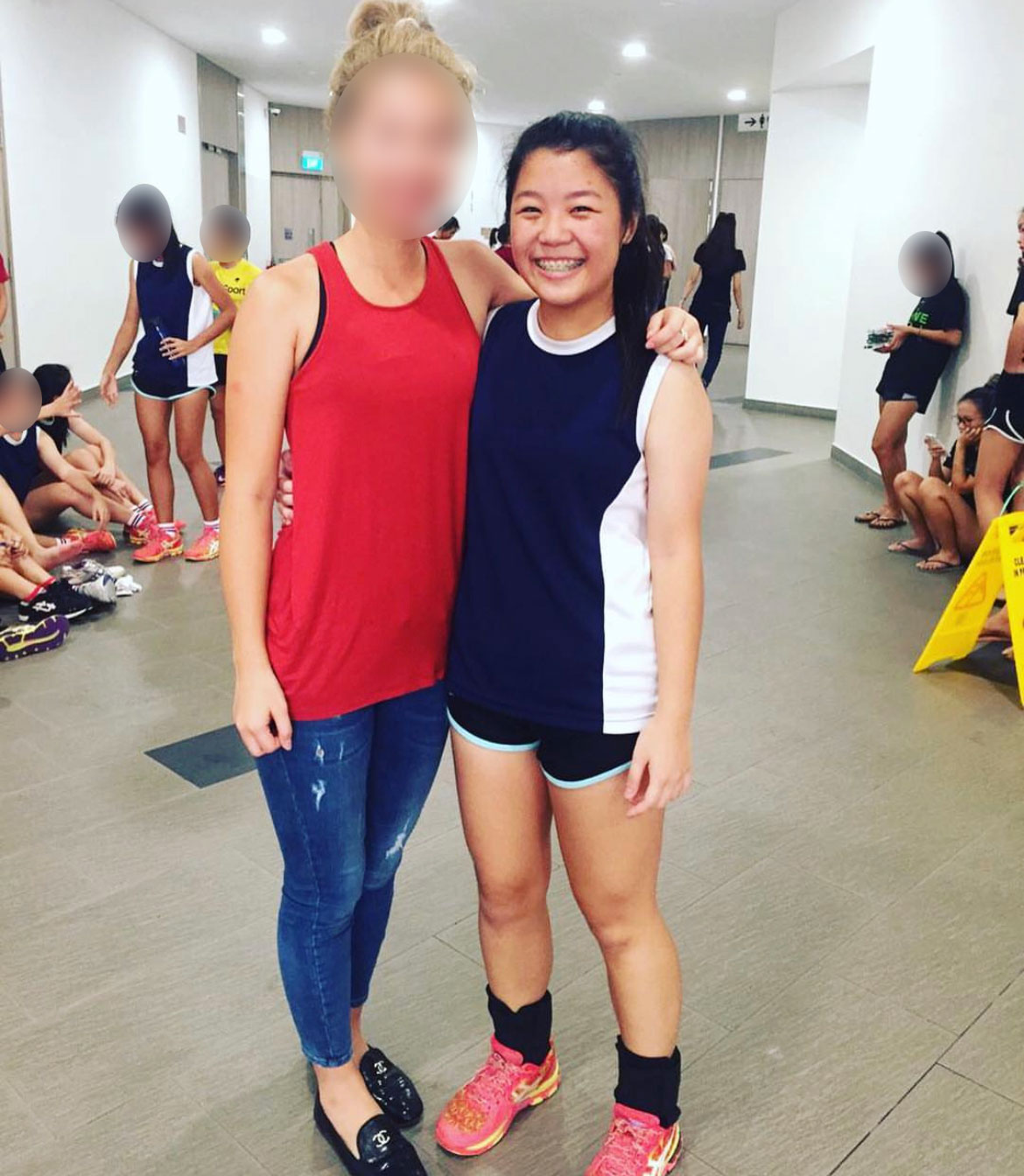 Me with my netball coach during my secondary and JC years — clearly, I got better at using whitening filters without looking like a ghost
Me with my netball coach during my secondary and JC years — clearly, I got better at using whitening filters without looking like a ghost
For the longest time, I avoided the sun when I was out and constantly sought shelter. I even stayed away from white clothes because I didn’t like the way the colour would make my skin appear even darker.
One of the biggest revelations for me was hearing my super tanned netball coach share about her own, similar experience. When people picked on how tanned she was, she would reply, “Who cares?” She is where she is today because of her hard work, and not how tanned or fair she is.
Back then, I didn’t really understand. I was so terribly affected by everyone else’s opinion of me and the colour of my skin.
But I guess in life, you grow older, become more mature, learn to love yourself, and understand the way society is. It took entering university to truly understand my coach’s words — it’s true, who cares? My skin tone doesn’t affect my other achievements in life; why should it bother me so much?
It also surprised me to discover how one’s environment can affect how you see yourself. I stopped receiving judgemental comments about my tanned skin in university, which helped me to grow comfortable in my own skin.
My relatives’ mindsets sadly didn’t change over the years, but the comments eventually trickled out, or maybe I just stopped letting them affect me, when I had gained confidence in looking the way I am, tanned skin and all.
Growing Up Tanned & Learning To Let Go Of Others’ Expectations And Embrace Myself
Now that I’ve stopped playing netball as often as before, my tan has faded. It’s drastic enough that people specifically point it out whenever we meet. Becoming fairer hadn’t changed my life in any way, which got me wondering why my younger self had been so obsessed with achieving this.
I still use sunblock every day, but rather than doing so and hoping I won’t turn a shade darker, it’s purely for the health of my skin. I’ve grown out of obsessively lathering myself with whitening products too.
Letting go of the pressure to be fair, and embracing being out in the sun has truly been liberating for me. Now, it doesn’t matter even if I should eventually become tanned again. At the end of the day, my skin, whatever shade it naturally is, is a part of me — I’ve learned to accept this, and not let others’ words affect how I feel about myself.

It’s so important to talk about the issue of fair-skinned superiority in Singapore, and Asian countries in general. I grew up watching whitewashed Asian idols, from K-pop stars to Channel 8 actors on screen, thinking it was a norm for us to look that way.
In fact, statistics show that the global market for skin lighteners in Asia was worth a whopping $8.6 billion just last year — I never knew how far spreading this obsession with fair skin was until recently. There’s a toxic mentality that directly ties a fair complexion to being beautiful, creating a standard of beauty that is eternally unattainable for so many of us.
Society is always changing and progressing, and hopefully, we’ll one day learn to put a stop to this obsession with lighter-coloured skin. Tanned or dark skin is beautiful too, and we should accept everybody for being exactly who they are.
Also read:

